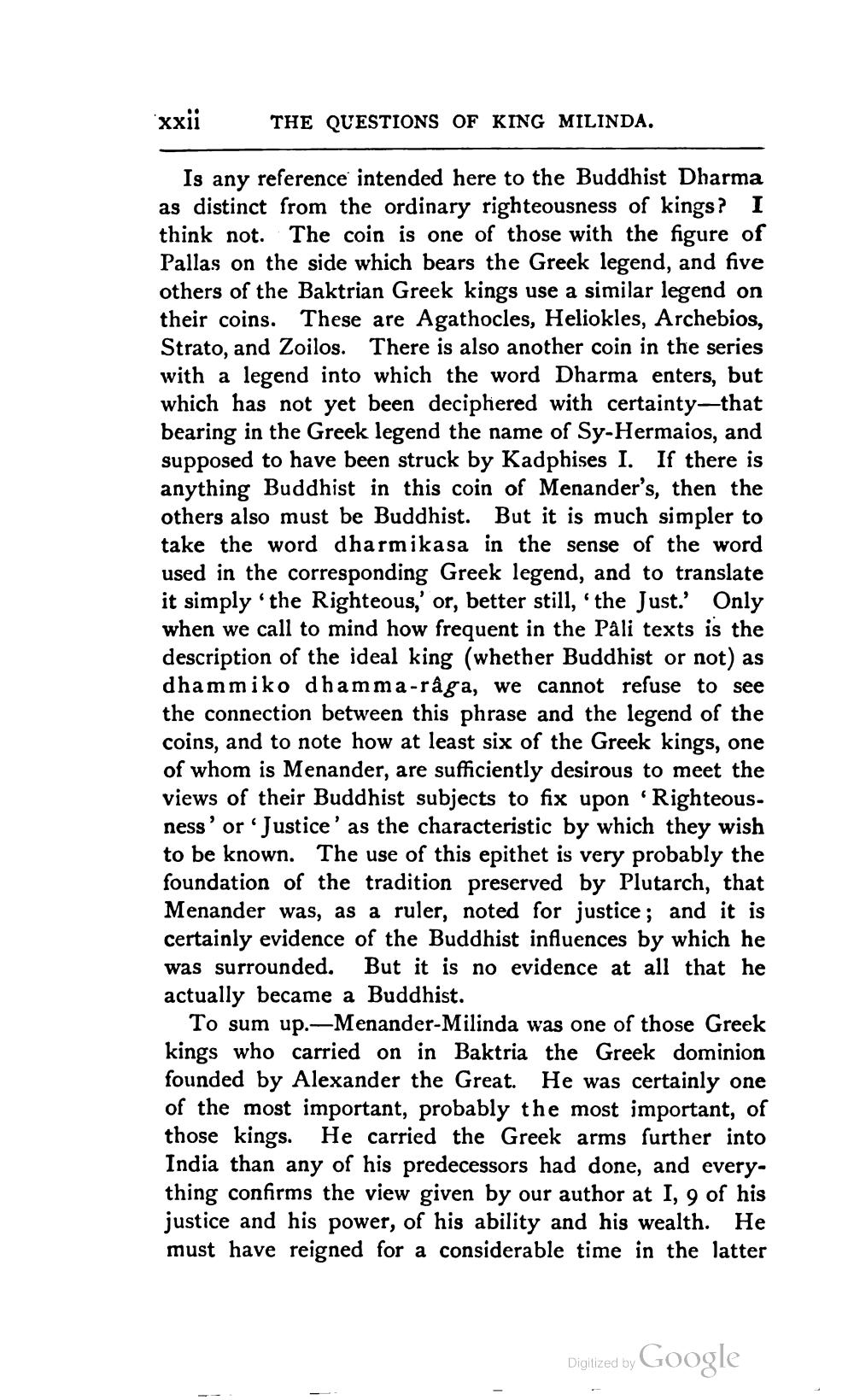________________
xxii
THE QUESTIONS OF KING MILINDA.
Is any reference intended here to the Buddhist Dharma as distinct from the ordinary righteousness of kings? I think not. The coin is one of those with the figure of Pallas on the side which bears the Greek legend, and five others of the Baktrian Greek kings use a similar legend on their coins. These are Agathocles, Heliokles, Archebios, Strato, and Zoilos. There is also another coin in the series with a legend into which the word Dharma enters, but which has not yet been deciphered with certainty-that bearing in the Greek legend the name of Sy-Hermaios, and supposed to have been struck by Kadphises I. If there is anything Buddhist in this coin of Menander's, then the others also must be Buddhist. But it is much simpler to take the word dharmikasa in the sense of the word used in the corresponding Greek legend, and to translate it simply the Righteous,' or, better still, the Just.' Only when we call to mind how frequent in the Pali texts is the description of the ideal king (whether Buddhist or not) as dhammiko dhamma-râga, we cannot refuse to see the connection between this phrase and the legend of the coins, and to note how at least six of the Greek kings, one of whom is Menander, are sufficiently desirous to meet the views of their Buddhist subjects to fix upon Righteous. ness' or 'Justice' as the characteristic by which they wish to be known. The use of this epithet is very probably the foundation of the tradition preserved by Plutarch, that Menander was, as a ruler, noted for justice; and it is certainly evidence of the Buddhist influences by which he was surrounded. But it is no evidence at all that he actually became a Buddhist.
To sum up.--Menander-Milinda was one of those Greek kings who carried on in Baktria the Greek dominion founded by Alexander the Great. He was certainly one of the most important, probably the most important, of those kings. He carried the Greek arms further into India than any of his predecessors had done, and everything confirms the view given by our author at I, 9 of his justice and his power, of his ability and his wealth. He must have reigned for a considerable time in the latter
Diglized by Google




